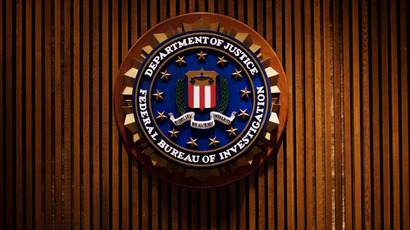Denmark's plan to give spooks greater-than-NSA spy powers sparks outcry

Copenhagen is considering empowering its intelligence services to conduct covert electronic surveillance on citizens abroad without the need for a court order. Outraged privacy advocates have pledged to fight the initiative.
Despite the global outpouring of criticism of the National Security Agency and its affiliated partners in the so-called Five Eyes spying ring, which was exposed by NSA whistleblower Edward Snowden in 2013, it seems the Danish government is only too willing to take spying to an unprecedented new level.
READ MORE: US court tosses out mass surveillance case against NSA, AT&T
As part of a package of new anti-terror initiatives, Copenhagen
is now prepared to empower the Danish Defense Intelligence
Service (Forsvarets Efterretningstjeneste, or FE) with greater
snooping authority than the NSA.
The announcement came in the wake of February 14-15 shootings
that put the Danish capital on high alert after two people were
killed, and five police officers injured.
Last week, Danish Prime Minister Helle Thorning-Schmidt presented
a 12-point anti-terror plan that will cost taxpayers 970
million kroner ($148m) over the next four years.
"We want to strengthen our ability to gather and analyze
[information] about terror planning abroad,"
Thorning-Schmidt told reporters. "We want to ensure that the
intelligence service is able to monitor Danes who travel abroad
to take part in extremist activities."
Defense Minister Nicolai Wammen believes it is necessary to track
Danes who may travel abroad to participate in extremist
activities, thus posing a national security risk when they return
to Denmark.
"This initiative will enable us earlier in the process than
today to go in and get information that can help to secure
Denmark against potential terrorist attacks. It is a system that
suits Denmark and the serious threats we face, and to ensure our
country best,” Wammen wrote in a statement published in
Berlingske News.
However, plans to give Danish intelligence what appears to be
unlimited access to the electronic communications of Danish
citizens abroad is being criticized by privacy watchdog groups,
including the think-tank Justitia and Associate Professor Anders
Henriksen, from the University of Copenhagen.
"Both the rules of the NSA and GCHQ governing their own
nationals abroad is said to contain better safeguards than the FE
proposal. This is especially true for the US system, where
monitoring requires a prior court order of a court. The British
system requires prior approval and fulfillment of certain
objective criteria. The order must be issued by a minister,”
according to the joint analysis, as reported in Politiken.
“Those conditions that normally need to be met in order to
get a court order are not present [in the Danish proposal]. And
when there are weaker grounds for suspicion without independent
controls, there is a risk of abuse,” said the head of
Justitia, Jacob Mchangama.
Danish parliament’s Legal Affairs Committee will debate the
proposal in a closed-door session on Wednesday.














